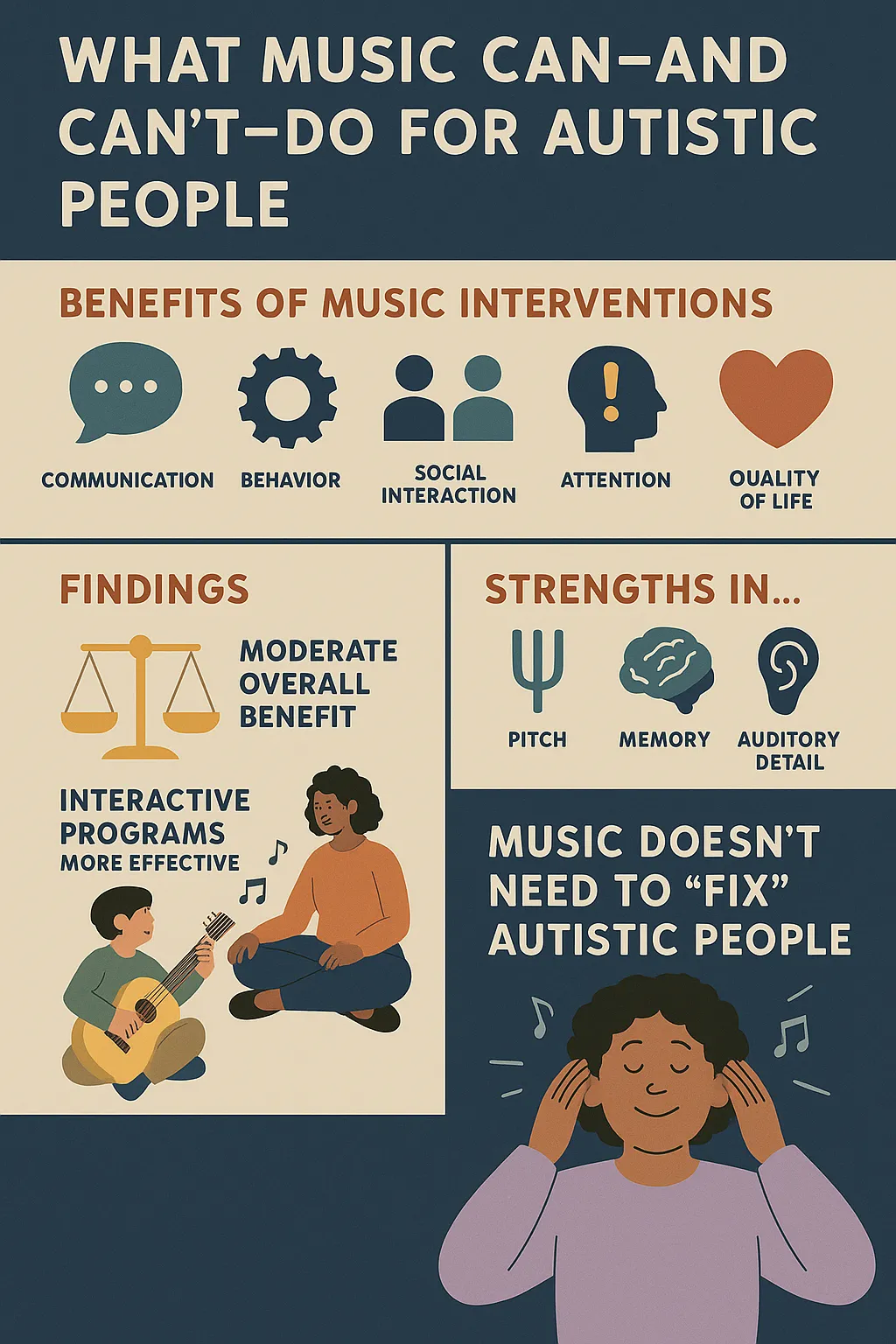What Music Can—and Can’t—Do for Autistic People
 AAB response to
AAB response to
“The effect of music interventions in autism spectrum disorder: A systematic review and meta-analysis”
(Navarro et al., medRxiv preprint, July 2025)
What They Studied
This systematic review and meta-analysis pulls from more than 80 studies to assess the effects of music-based interventions (MI) for autistic people. It explores how approaches like active music-making, listening, and improvisation impact:
- Communication
- Behavior
- Social interaction
- Attention
- Quality of life
The authors also highlight autistic people’s distinct musical perception, pointing to strengths in pitch sensitivity, memory, and auditory detail.
What They Found
- Music interventions offer moderate overall benefit — especially in social interaction, expressive language and emotional engagement.
- Evidence is strongest for interactive, therapist-led programs rather than passive listening alone.
- Musical abilities in autistic individuals are often enhanced, not impaired — with some showing superior pitch discrimination and auditory memory.
What’s Good — and What’s Missing
What’s Encouraging
- The authors describe music as non-invasive and enjoyable, and acknowledge the need for neurodiversity-affirming models.
- They recognize that autistic people perceive and process music differently, and that interventions should reflect this.
What Still Needs Reframing
- The framing still leans into therapeutic outcomes measured by neurotypical norms — "expressive language" and "social engagement" as defaults.
- Autistic joy, autonomy and regulation through music are rarely the goal — only the method.
- Autistic people’s own views on music as self-expression, not just social scaffolding, are absent.
AAB’s Take
Music doesn’t need to be justified by outcomes.
It doesn’t need to “normalize” us.
It doesn’t need to fix.
If it helps us stim in rhythm, connect without speaking or regulate ourselves after becoming overwhelmed — that’s not a side effect.
That’s the whole point.
Music is one of the few places autistic people can be unmasked and still heard — but only if we’re allowed to lead.
Final Note
The authors call for more personalized and neurodiversity-affirming intervention models. Good.
But that begins not with better metrics —
It begins by asking autistic people what music means to us.